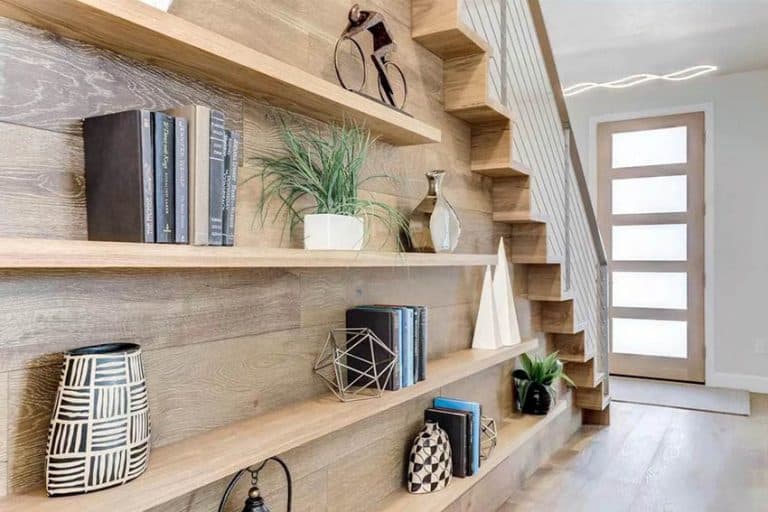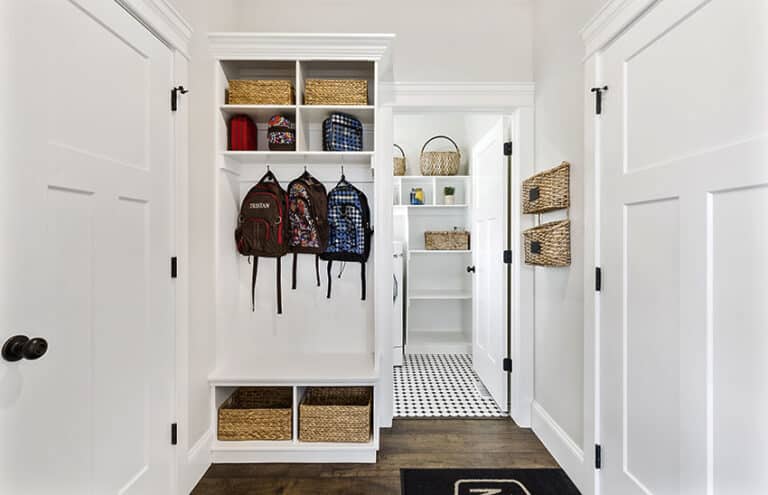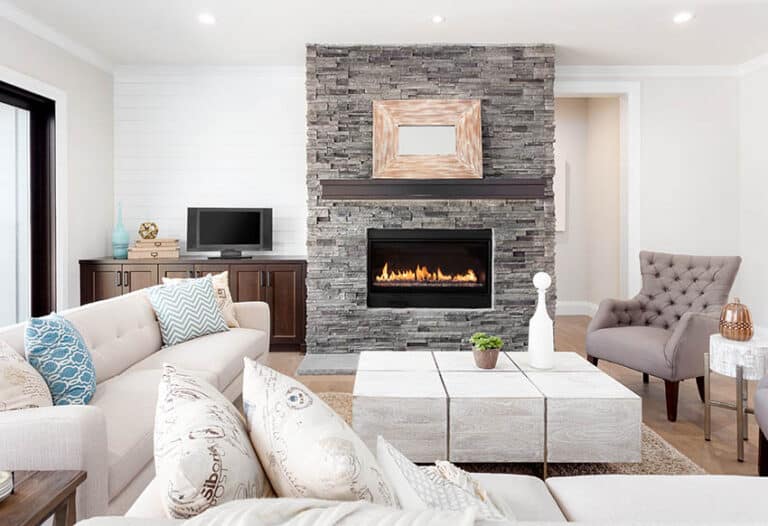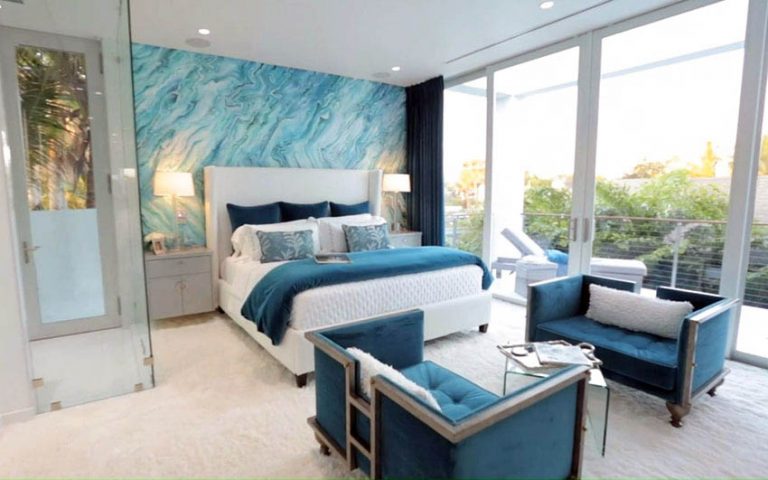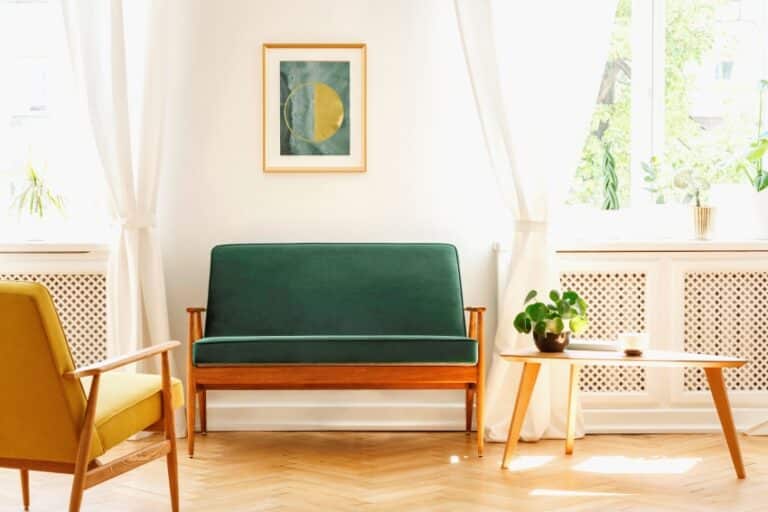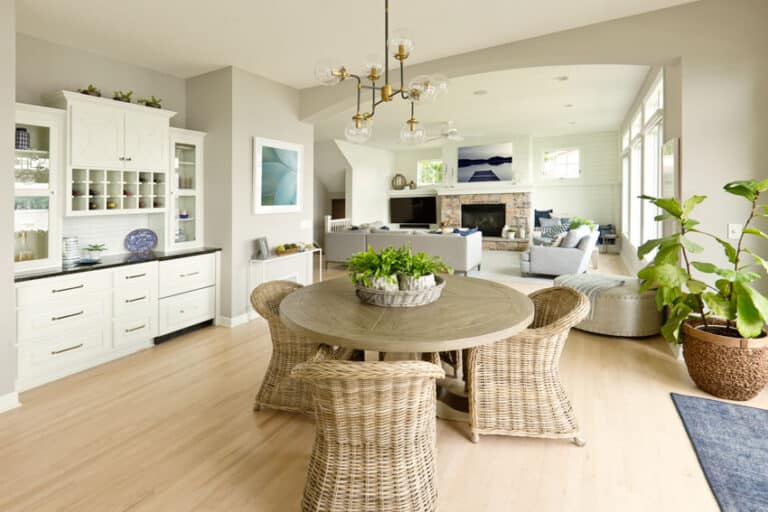Bamboo Wall Designs (Accent Wall, Panel & Divider Ideas)
Here our gallery of different types of bamboo wall designs including accent wall & divider ideas, tips on how to cut bamboo wall panels, and how to install bamboo on walls.
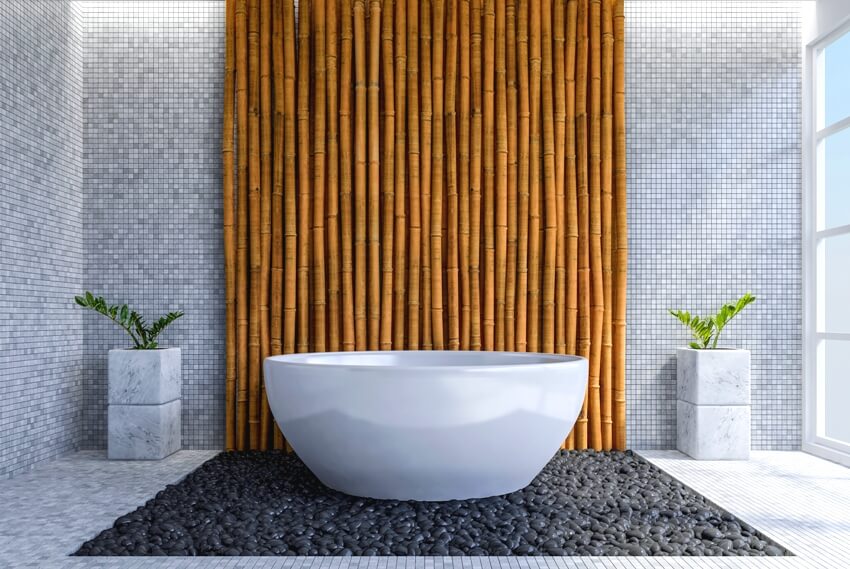 When we are constantly surrounded by concrete, stone, and glass, we instinctively long for the relaxing and other pleasurable feelings of nature. A bamboo wall design is a natural feature worth considering as it is versatile, inexpensive, eco-friendly, durable, and aesthetically pleasing.
When we are constantly surrounded by concrete, stone, and glass, we instinctively long for the relaxing and other pleasurable feelings of nature. A bamboo wall design is a natural feature worth considering as it is versatile, inexpensive, eco-friendly, durable, and aesthetically pleasing.
Bamboo wall designs have been popping up in our social media feeds for quite some time now. From bamboo wall dividers to bamboo wall accents, the versatile reed can be installed in any theme, size, or budget you have. The humble reed is an affordable way to sustainably introduce dimension to your home.
Championed as a “wonder material” and revered as a “sustainable beauty,” the humble bamboo is definitely taking strides as a sensible alternative to hardwood lumber. Learn more about these bamboo wall designs that you can incorporate into your next home update.
Types Of Bamboo Walls
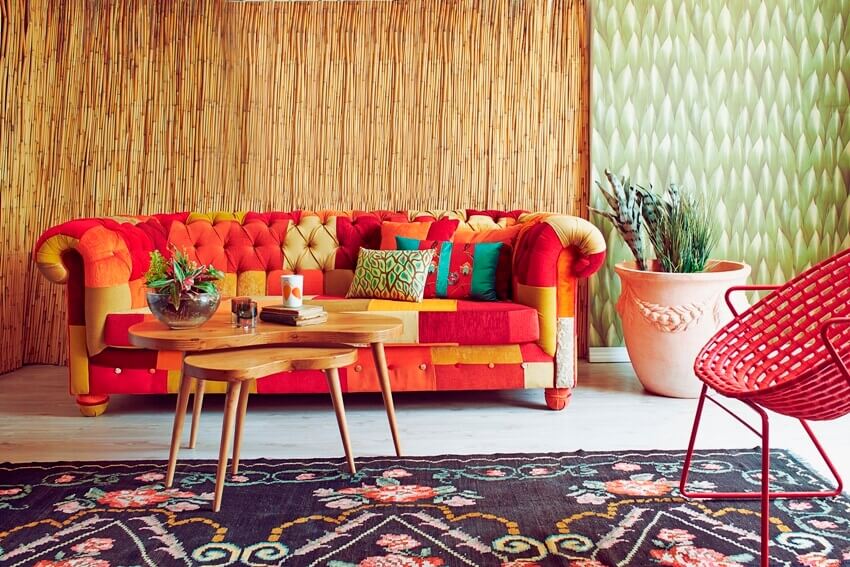
Bamboo Wall Panels
From carbonized finish to burnt tan, the bamboo wall panels give owners a wide range of surface options to match their preferences while enjoying the benefits of bamboo, whether in its commercial or in raw form.
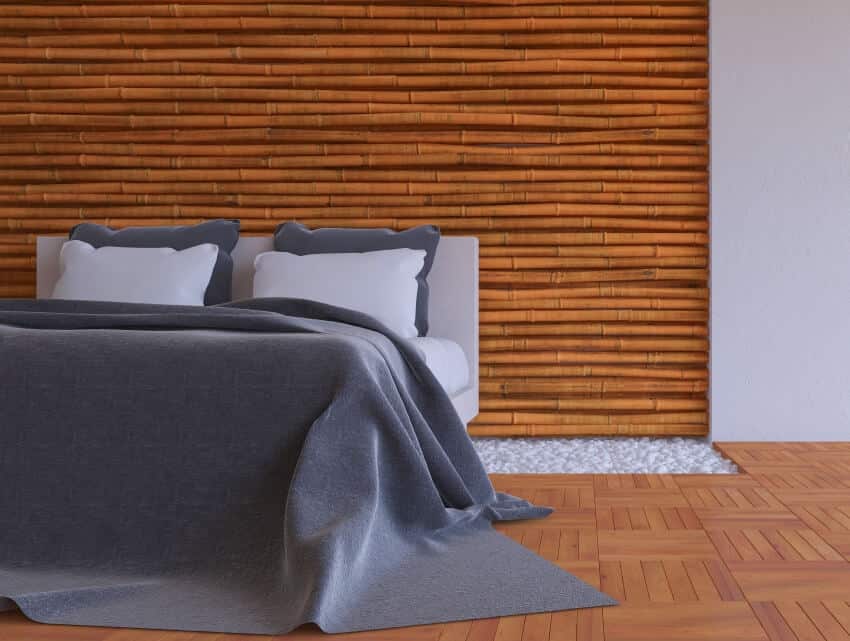
Bamboo panels can also be made from compressed and laminated bamboo strips or mashed fibers. A trending design wall décor is the bamboo fiber fluted wall cladding that is typically placed as a backdrop for media rooms, bedrooms, dining, or living areas. See our guide to the types of wood wall paneling for more ideas.
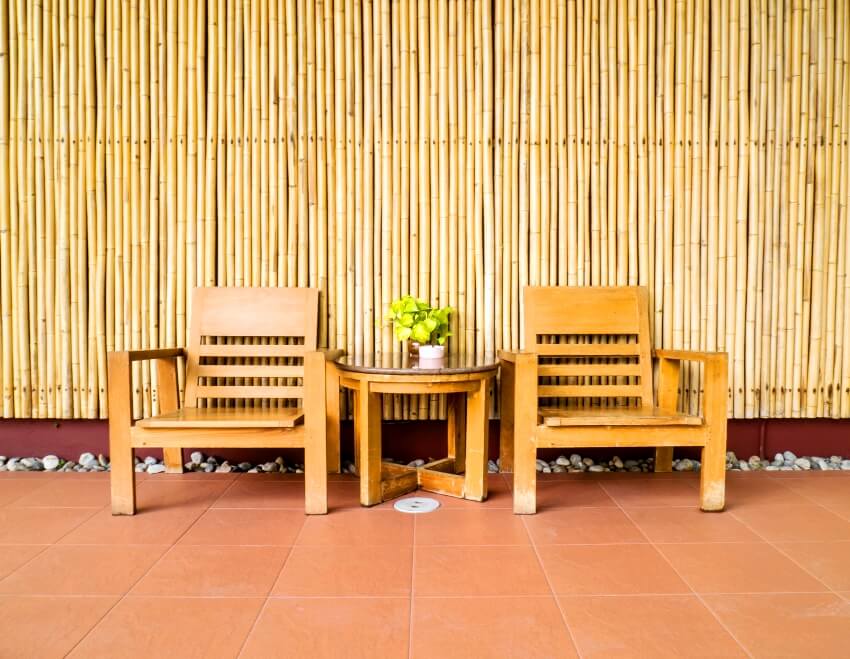
Bamboo Wall Divider
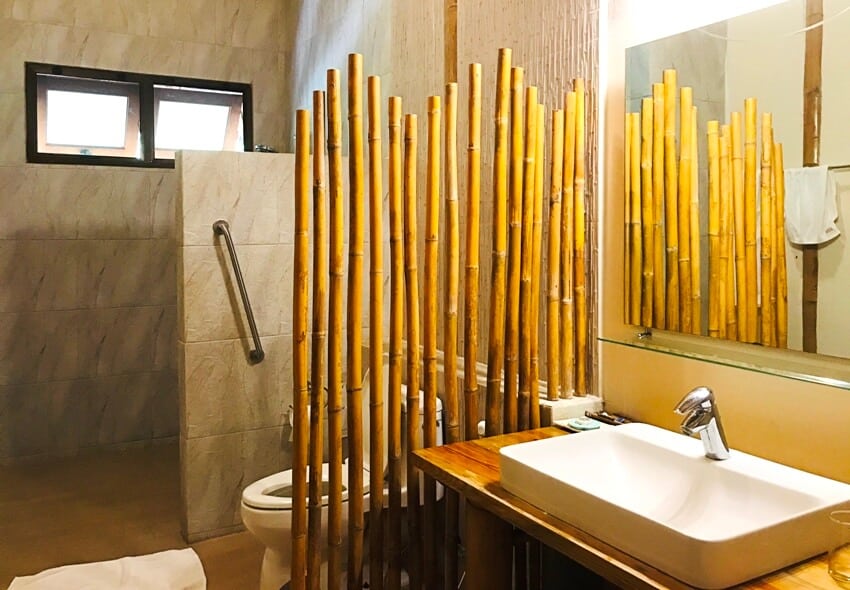
Bamboo wall dividers can have metal frames and grilles for a sturdier structure or have sea shell panels. There are also colored acrylic panes for a stained-glass effect that allows light to pass through but just enough opacity for privacy.
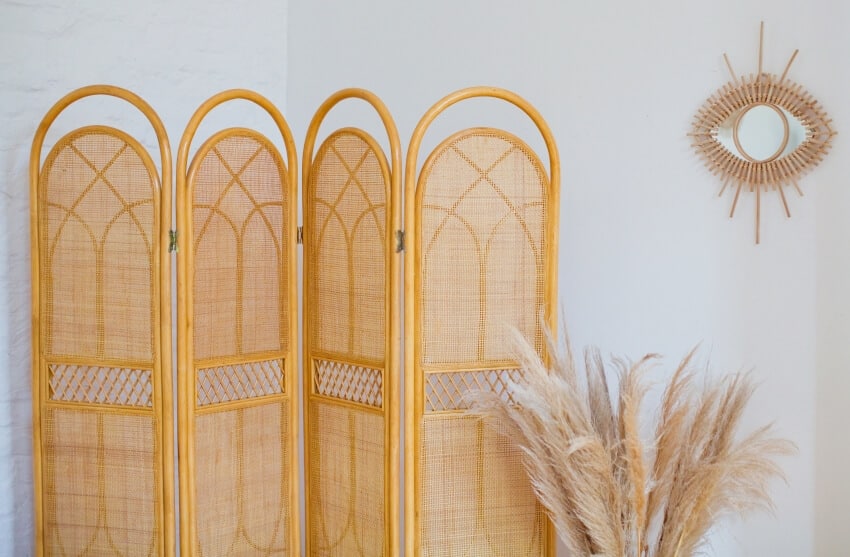
You’ll see the bamboo wall divider as an opportunity to play on artificial lighting, like creating a silhouette backdrop or a rustic addition with thick bamboo reeds placed vertically but in random positions.
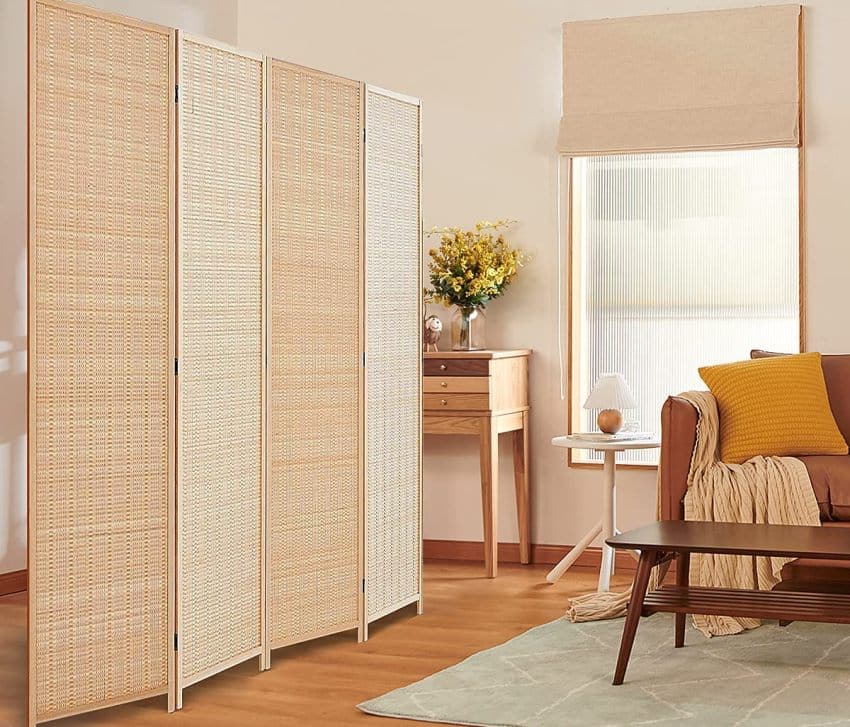
Woven strips of bamboo framed in thick bamboo stalks are another great idea as it creates a soft natural look. Sliding bamboo wall dividers is also a great idea for bedrooms.
Bamboo Wall Paper
When you’re looking for eco-friendly wallpaper, bamboo is a sensible option as they are very easy to install and customize.
There are also bamboo wallpaper murals, which give that cool, natural feel or mood. Waterproof bamboo wallpaper that is perfect for bathroom or spa areas.
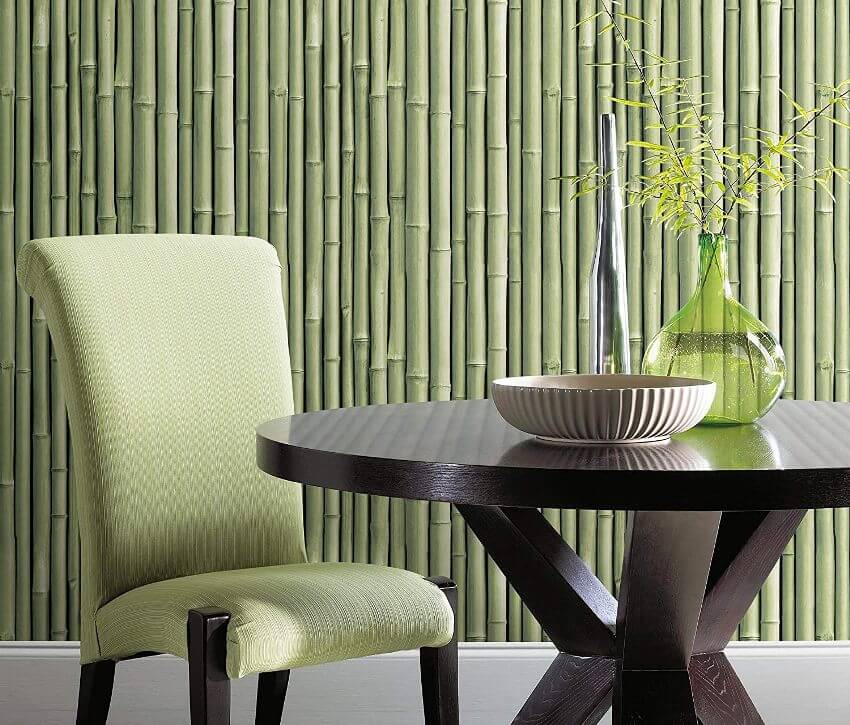
A bamboo wall covering can set the tone for the rest of your interior, which can spark inspiration. As a baseline décor, you can mix and match your bamboo wallpaper with the linens and other fabrics, throw pillows, and decor.
You may remodel effectively on a tight budget without replacing furniture by just laying textured bamboo mats against the walls and then adding a few touches.
The types of bamboo wallpaper are differentiated by the materials of the bamboo trunk. Bamboo wallpaper features such as color and quality depend on which part of the bamboo trunk the material was used. These are the outer or the inside of the trunk. An outer layer of wallpaper will showcase the clear visible tree structure.
In addition, the wall covering will have a thicker structure which will show bamboo columns when laying out the slats vertically. This adds volume and space to the interior space.
When installing a bamboo wallpaper, you’ll need a plastic spatula to level the edges of the paper. On the other hand, a rubber roller will smooth and press the bamboo paper against the wall. See our guide on peel and stick wallpaper pros and cons here.
The typical color of natural bamboo wallpaper in shades of white such as ivory or milk, green such as pale green, green-brown, avocado, or pistachio hues. Brown and beige are also common with bamboo wallpapers.
Bamboo Accent Wall
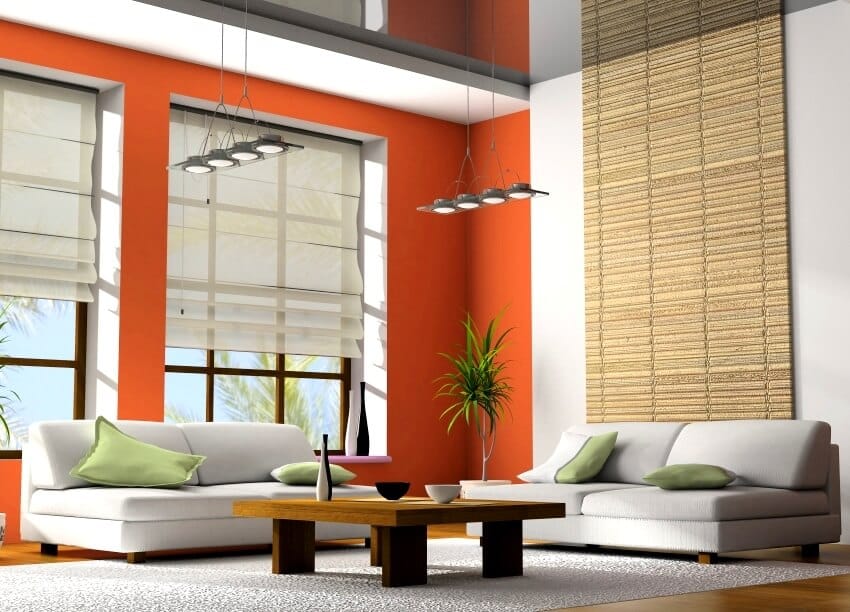
There are also bamboo planks available that come in tongue and groove connections. These planks are usually intended for a flooring installation. Still, they can also be used as a bamboo accent wall, especially as a backdrop for a bedroom or a living area.
Choose bamboo planks with the full widths as it showcases the unique graining of various bamboo textures. When installing bamboo planks, start with the studs on the wall and make a mark on their centers. These are where it is advisable to nail your bamboo planks along.
Since bamboo strips are flexible enough to bend without breaking easily, you can create wall décor with abstract forms or with arched profiles. Bamboo carvings are another popular option, where intricate designs can be carved on the reeds’ stalks.
For a sophisticated and minimalistic look, you’ll find black or dark bamboo wall accents that give an elegant ambiance that can be mixed with mid-century furniture and décor. To add dimension to your bamboo accent wall, you can add shelving and decorative items.
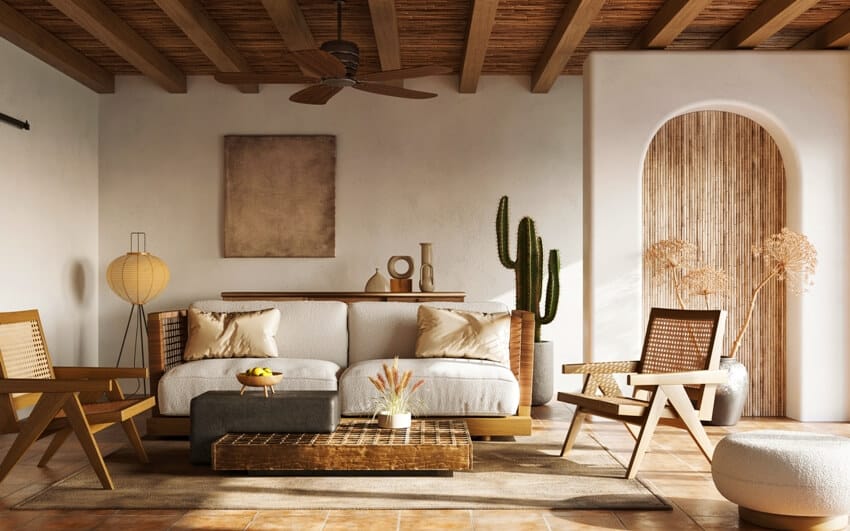
How Do You Cut Bamboo Panels?
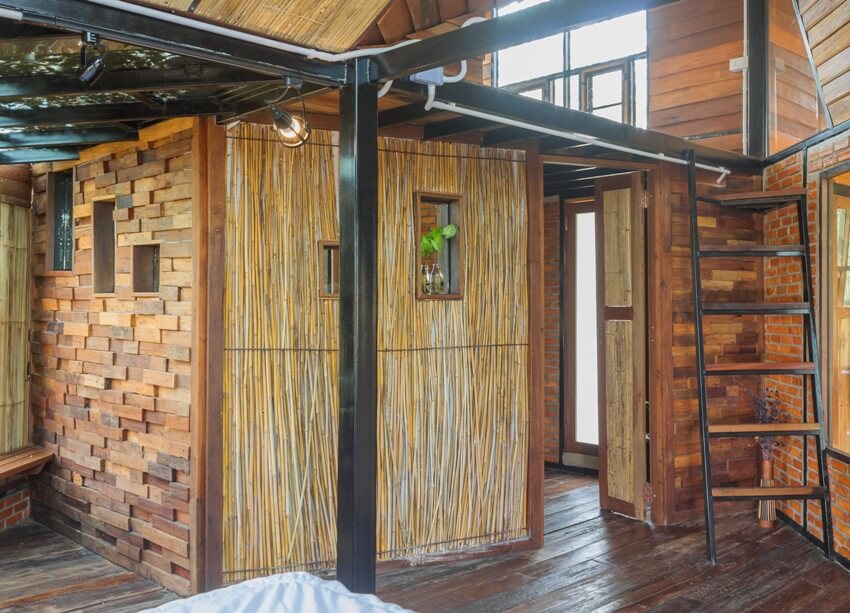
Before starting, always make sure to measure the wall space where you plan to install your bamboo panels. Place a painter’s tape or masking tape to mark the measurements. Also, be sure to be properly geared before making a cut.
Any direction can be sliced in the paneling. Roll the paneling tightly and cut with a hand, saber, or chop saw for horizontal cuts. Use a utility knife to cut between the strips for vertical cuts. Incorrect cutting for outlet boxes or heat registers has wrecked beautiful paneling work.
One way is to use chalk to indicate the outlet. Then, tap at the outlet location with the proper cut panel on the wall. An image will be transferred to the back of the panel, indicating the cutting region.
A 1/4″ gap around the area will allow for spacing and adjustment, while the face plate will hide the additional space. Using a decent cabinetry-style blade will give you the best results.
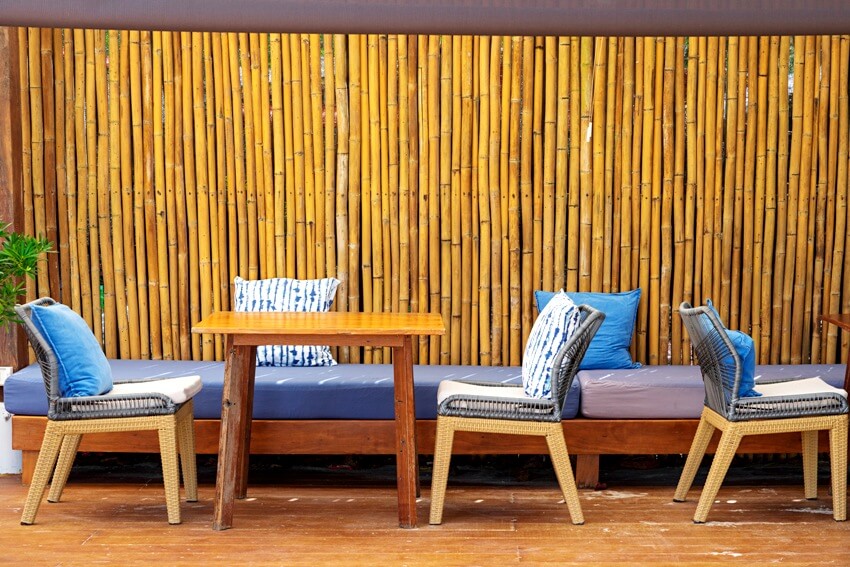
When cutting bamboo wall panels, ensure to cut and maintain steady and brisk feeds as bamboo can quickly burn from friction.
Bamboo has that long and stringy grain, so avoid splinters rout with sharp gradual increments when using your table saw (1/8″ or below).
How Do You Install Bamboo On A Wall?
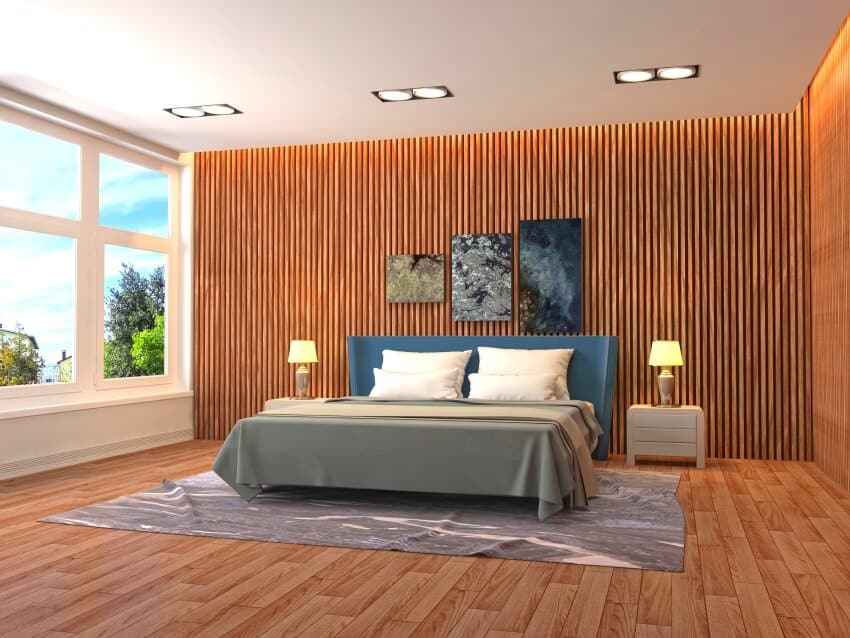
For individual bamboo stalks, especially for large widths, you can cut the bamboo using a power-saw or a fine blade hacksaw. When installing, predrill the holes into individual bamboo from the stalk’s top, middle, and bottom portions, then insert the screws or nails. To secure bamboo stalks together, use a figure-eight knot to fasten these poles together.
If you plan to have your bamboo wall as a permanent installation, you can apply adhesive on each contact cement to the wall in addition to your nails or screws.
Don’t forget to have your bamboo strips or stalks on a framework such as timber if you’re installing individual poles. Clear contact cement products are available in the market that you can apply to your bamboo wall design.
Stapling your panel bamboo can be used for temporary installations and light bamboo strips or mats.
For more related ideas, visit our guide to bamboo flooring here.

